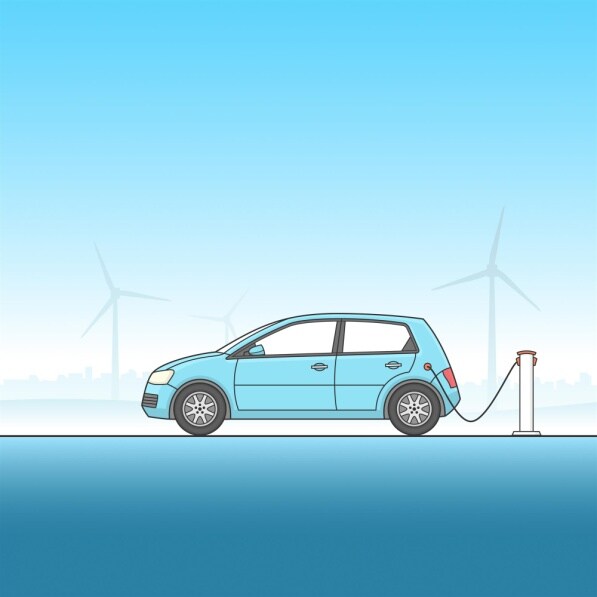
In the U.S., there are about 253 million vehicles on the road. In 2013, vehicles consumed about 134 billion gallons of gasoline. Recent drops in fuel prices may have sapped some of the public’s desire for greater fuel economy, but the fact remains that gasoline is a scarce resource and prices will inevitably rise again at some point. Concerns about global warming will also continue to spur development of vehicles that emit less carbon and are more fuel efficient.
Today’s auto consumer has more choices than ever before to achieve fuel economy. Among others, they choose fuel-sipping conventional vehicles, gas-electric hybrids, and electric vehicles.
The range of choices consumers have can be confusing, as each platform has advantages and disadvantages. For consumers who are serious about getting greater fuel economy, researching the options available will help them make a more informed decision concerning which vehicle best suits their individual driving needs. Auto consumers shopping Butler Chrysler dealers for vehicles can find a variety of options to fulfill their desires for greater fuel efficiency.
Conventional Gas Vehicles
Detroit and foreign automakers continue to push conventional gasoline engine and other automotive technology to its limits, turning out vehicles that get improved fuel economy. While they may not get as good gas mileage as most hybrids, and by no means equal the reduced carbon emissions of an electric vehicle, fuel efficient conventional gas vehicles can be the right choice for many drivers.
Motorists who travel less than 7,500 miles per year will not see sufficient savings in gasoline to make a hybrid vehicle the right choice from a financial standpoint. Also, hybrids may have a higher cost of ownership than conventional models of the same vehicle.
Diesel Vehicles
Once only found on trucks, diesel engines have been popping up in more standard passenger vehicles in recent years, although they still account for only a fraction of auto sales. Diesel vehicles offer a number of advantages to auto owners.
Diesel engines offer up to 30 percent greater fuel economy than similar conventional gas engines. They also provide greater torque, allowing diesel vehicles to be more useful for towing. Diesel engines typically have lower maintenance costs than their gas-powered cousins, too.
On average, diesel vehicles also have greater acceleration than vehicles powered by a similar conventional gasoline engine. Another key benefit of the diesel engine is that vehicles equipped with them usually have a greater trade-in value than vehicles equipped with a similar conventional gasoline engine.
Several automakers have hybrids on the market, and Chrysler has committed to launching a Chrysler 300 hybrid and a mini-van hybrid in 2016.
With regard to the environment, diesel engines produce fewer carbon emissions than conventional gasoline engines. Because diesel is burned in excess air, carbon emissions are fewer.
Hybrid Vehicles
When it comes to stop-and-go city driving, hybrid vehicles can’t be beat for fuel economy. Hybrid vehicles – which use a combination of gasoline and electric power – go back to the early 1900s, but the technology didn’t take off until the fuel price explosion of the early 2000s.
The U.S is the largest market for hybrid vehicles, with more than three million sold in 2013. More than nine million hybrid vehicles are currently on the road in the U.S.
In a hybrid vehicle, the car relies on gasoline power for the highway and electric drive for lower speed urban driving. For drivers who make extensive use of their vehicles and who are frequent city drivers, hybrid cars are a good deal.
Hybrids are pricier than conventional gasoline vehicles, and there is always the worry that drivers will have to replace the battery, but most studies show that drivers who travel less than 15,000 miles per year may never need to replace their battery.
Electric Vehicles
No gasoline-powered engine can compete with a plug-in electric vehicle in terms of direct carbon emissions. That said, electric vehicles may not be as eco-friendly as you would think. Electric vehicles that derive their power from electricity generated from coal-fired power plants, for example, still have a negative environmental impact because of the emissions involved in generating their power.
For drivers who want to cut the cord between themselves and Big Oil, however, electric vehicles are an excellent choice. Buyers should be aware however that these vehicles only have a limited range between charges and that infrastructure to support these vehicles remains in its infancy.
Electric vehicles will typically cost more than comparable conventional gasoline vehicles, but a federal tax credit of $7,500 may help absorb some of the sticker shock.
Tips for Choosing
When choosing a fuel-efficient vehicle, auto consumers should ask themselves the following:
· How often do I drive? Where do I drive?
· Will the fuel I save with an alternatively-fueled vehicle such as a hybrid or plug-in electric be worth the extra price I may pay?
· Is there sufficient infrastructure to support an electric vehicle where I work and drive?
· Is a diesel engine practical for me?
· How large of a vehicle do I need?
· How important is reducing carbon emissions to me?
By researching vehicle options and examining specific vehicle needs, auto consumers stand a better chance of obtaining a vehicle that is efficient and meets their transportation needs.
The Chrysler family of vehicles is working to introduce more fuel efficient options to the marketplace. In 2016, the automaker will launch a mini-van plug-in hybrid and a small plug-in hybrid SUV. Jeep is also launching a smaller, more fuel efficient SUV in its Renegade model this year. New Jersey residents interested in seeing what Chrysler has to offer in terms of fuel efficiency can visit Precision Chrysler Dodge Jeep Ram in Butler and see the dealership’s fully stocked lot of Chrysler and associated brand vehicles. Butler Dodge, Jeep, Ram, and Chrysler dealers stand ready to answer all questions concerning these vehicles and help customers find financing to buy the fuel efficient vehicle they want.